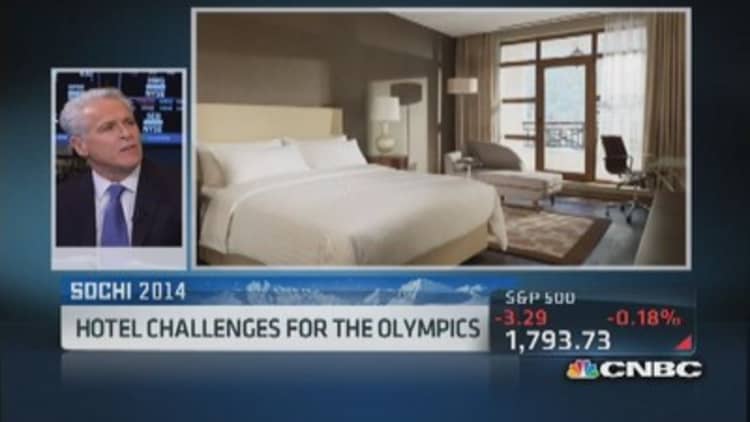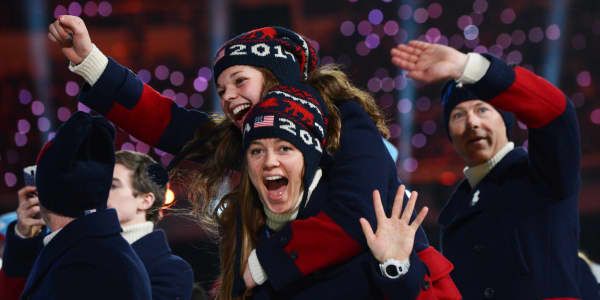If freestyle spending were a sport in the 22nd Winter Olympic Games, Russia would easily walk off with the gold.
The price tag for the Sochi Games? $50 billion, making Sochi the most expensive games in history. Second place goes to Beijing, where spending topped more than $40 billion in 2008.
Russia's initial budget for the Olympics was $12 billion, but it's not uncommon for a country to overspend. According to an analysis by the University of Oxford, average costs historically overrun by more than 300 percent.
(Read more: Why Sochi Olympics is worth the $50 billion)
Russian President Vladimir Putin's critics, particularly Alexei Navalny, argue that Sochi spending has been ridden with corruption. Navalny has even published a website (http://sochi.fbk.info) detailing Sochi-related spending and corruption. Putin has dismissed such accusations.
Driving up the cost of the Sochi Olympics are large-scale infrastructure projects. The most expensive is an $8.7 billion road and railway.

(Read more: How much is Putin worth?)
Fisht Stadium, the location of the opening and closing ceremonies, reportedly cost $780 million to build. With a capacity of 40,000, that brings the average cost per fan to $19,500.
But now at Day 5, fans aren't thinking about the Olympic price tag—except, perhaps, the fan with the most to lose: Putin.
—Mary Catherine Wellons, Social Media Director, CNBC.com





